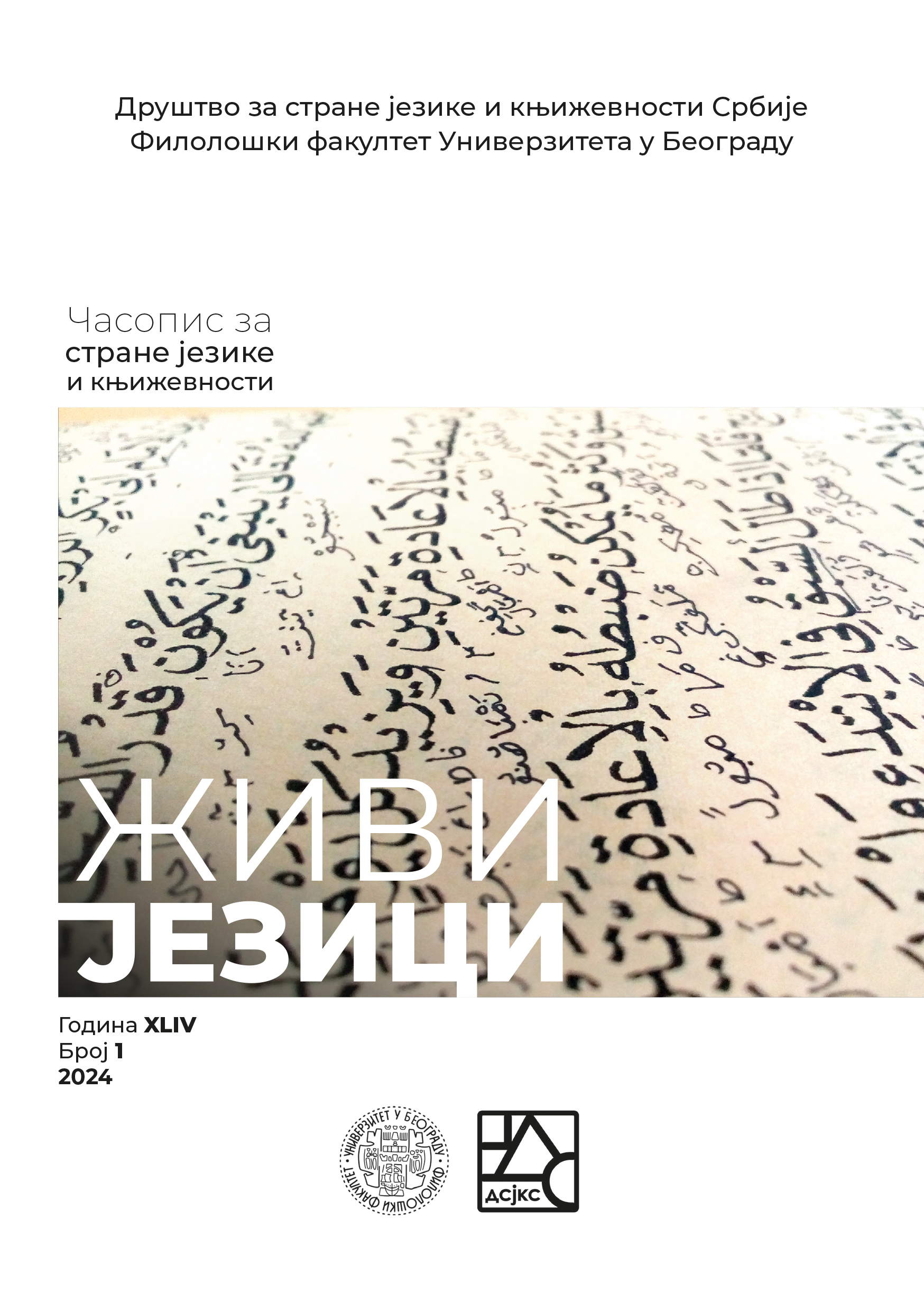О часопису
Часопис Живи језици објављује радове из области глотодидактике, лингвистике и примењене лингвистике, филологије и студија културе, као и библиографије, хронике и приказе научне, стручне, уџбеничке и приручне литературе. Часопис је отвореног приступа, а прилози пролазе кроз процес двоструке анонимне рецензије.
Најновији број
Год. 44 Бр. 1 (2024)

Објављено:
2024-12-31

